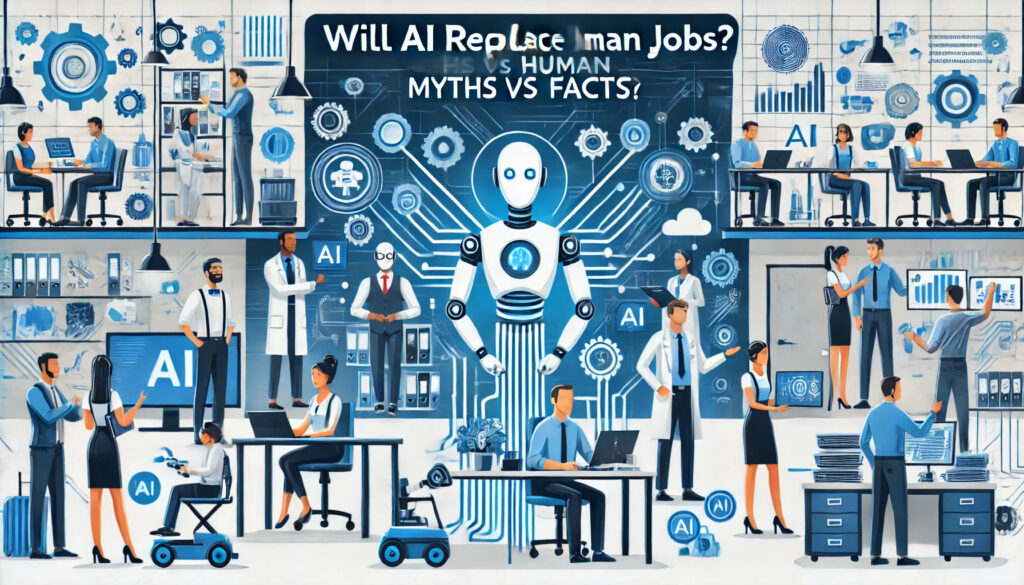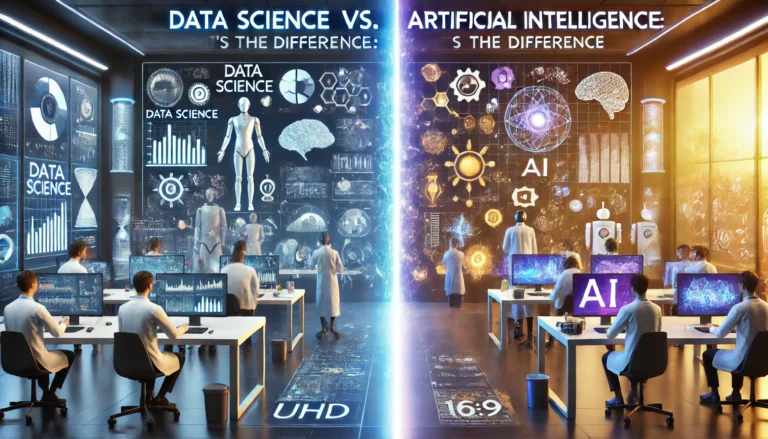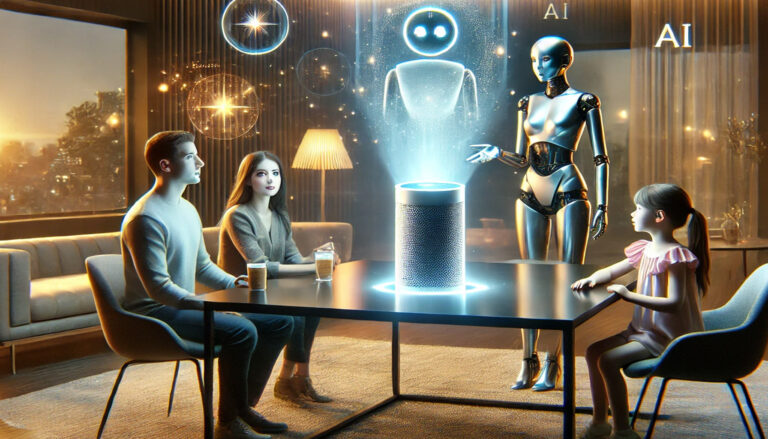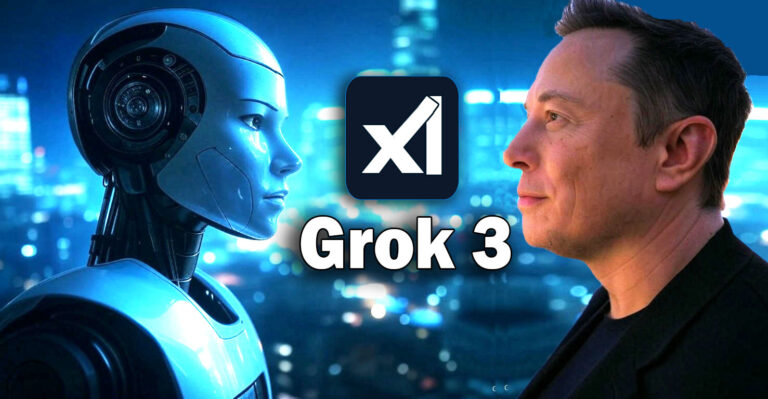
The rise of artificial intelligence (AI) has ignited discussions and debates about its impact on employment. Will AI take over all human jobs? Or will it open doors to opportunities previously unimaginable? This article dives into the myths and facts surrounding AI’s role in reshaping the workforce, distinguishing fear-driven narratives from evidence-based insights.
Artificial intelligence is revolutionizing industries, sparking optimism and concern in equal measure. While the potential for automation is immense, the reality of AI’s impact on jobs is more nuanced. By examining the myths and facts about AI’s role in employment, this article aims to provide a balanced perspective that fosters informed decision-making.
Table of Contents
- Myth 1: AI Will Replace All Human Jobs
- Myth 2: Automation Will Only Affect Low-Skill Jobs
- Myth 3: AI Will Lead to Mass Unemployment
- Myth 4: AI Will Make Human Skills Obsolete
- How AI is Transforming Industries
- Opportunities Created by AI
- Preparing for the AI-Driven Future
- Conclusion
1. Myth 1: AI Will Replace All Human Jobs

Fact: Augmentation, Not Replacement
It’s a common misconception that AI will render human workers obsolete. While AI excels in automating repetitive tasks, it struggles with roles requiring creativity, emotional intelligence, and complex decision-making.
Examples:
- Healthcare: AI aids in diagnosing diseases, but doctors remain indispensable for patient care.
- Creative Industries: AI-generated art and music are impressive, but human creativity still sets the benchmark.
- Education: AI-powered tools enhance learning, yet teachers provide the emotional and intellectual guidance AI cannot replicate.
2. Myth 2: Automation Will Only Affect Low-Skill Jobs
Fact: Impact Across Skill Levels
Automation is reshaping roles across all skill levels. High-skill professions, such as law and medicine, are integrating AI to enhance efficiency.
Examples:
- Law: AI assists with legal research, streamlining case preparation.
- Medicine: Tools like AI-based diagnostic systems support doctors in identifying diseases more accurately.
- Finance: AI-powered algorithms improve investment strategies but require human oversight for nuanced decision-making.
3. Myth 3: AI Will Lead to Mass Unemployment

Fact: Technology Creates Jobs
History demonstrates that technological advancements often create more jobs than they eliminate. The industrial revolution, for instance, disrupted traditional farming roles but birthed entirely new industries.
AI-Driven Job Creation:
- AI Ethics Consultants: Ensuring ethical use of AI systems.
- Machine Learning Engineers: Designing and maintaining AI algorithms.
- Data Analysts: Interpreting and deriving insights from large datasets.
4. Myth 4: AI Will Make Human Skills Obsolete
Fact: Elevating Human-Centric Skills
AI’s ability to handle routine tasks underscores the importance of uniquely human skills like critical thinking, creativity, and emotional intelligence.
Valuable Skills in the AI Era:
- Collaboration
- Adaptability
- Innovative problem-solving
Employers increasingly seek individuals who excel in these areas to complement AI capabilities.
5. How AI is Transforming Industries
Healthcare
- AI Applications: Assisting in diagnosing diseases, developing personalized treatment plans, and supporting surgeries.
- Human Role: Doctors and nurses provide patient care and make ethical decisions.
Education
- AI Applications: Platforms offer tailored learning experiences based on individual needs.
- Human Role: Teachers foster critical thinking and emotional growth in students.
Retail
- AI Applications: Personalized recommendations and inventory management improve customer experience.
- Human Role: Empathy-driven customer service remains irreplaceable.
Manufacturing
- AI Applications: Automation streamlines production lines, enhancing efficiency.
- Human Role: Quality control and process innovation are driven by human expertise.
6. Opportunities Created by AI
AI’s role as a job creator cannot be overlooked. Emerging roles include:
AI Trainers
Professionals who teach AI systems to interpret human behavior, refining their effectiveness.
Ethics Consultants
Experts ensure AI systems align with ethical standards, addressing bias and fairness.
Data Analysts
Specialists analyze the vast datasets generated by AI, providing actionable insights.
7. Preparing for the AI-Driven Future
To thrive in an AI-integrated world, individuals and organizations must adapt by focusing on:
Upskilling
Learning new technologies and tools to remain competitive.
Reskilling
Transitioning to roles that leverage human-centric skills such as emotional intelligence and creativity.
Lifelong Learning
Adapting to evolving industry demands by embracing continuous education.
Steps for Success:
- Enroll in online courses related to AI and data science.
- Participate in workshops focused on soft skills like leadership and adaptability.
- Stay informed about industry trends through webinars and professional networks.
8. Conclusion
The question is not whether AI will replace human jobs but how it will reshape them. By embracing adaptability, lifelong learning, and collaboration, humans can harness AI as a tool to complement their skills. Instead of fearing AI, leveraging its potential for innovation and growth can lead to a dynamic and inclusive future.
The narrative that AI will cause mass unemployment is largely a myth. The reality is more nuanced: while some roles may become obsolete, others will emerge, and many will evolve. By distinguishing myths from facts, we can navigate the AI revolution with optimism and preparedness, ensuring a prosperous and equitable future for all.




